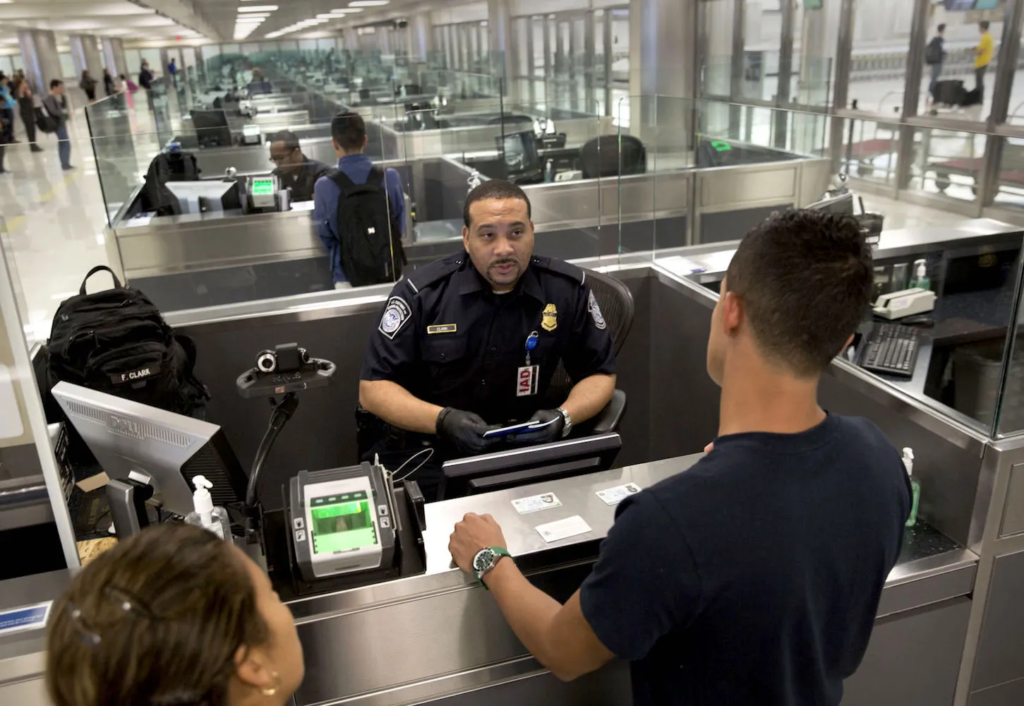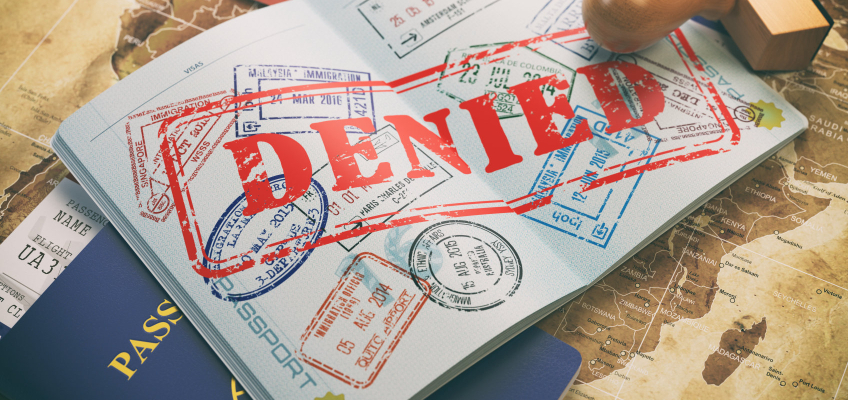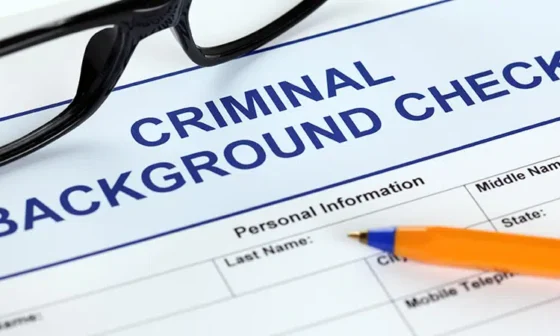In my opinion, being denied entry into an airport is one of the most stressful circumstances a traveler can encounter. Immigration authorities have the right to prohibit entry for a variety of reasons, some of which may surprise you. This can be a frustrating and distressing experience, particularly for overseas travelers. Knowing these reasons and how to prepare will assist ensure that your trip goes smoothly. Let’s look at some of the most prevalent reasons why entry is denied at the airport and how to avoid them.
Common Reasons for Denying Entry at the Airport
Denial at an international airport may be a stressful experience for any traveler. Here are some of the most typical reasons why travelers are denied entry, so you may better prepare and prevent such tragic situations.
#1. Invalid or incomplete travel documents
One of the most prevalent reasons for rejection of entry is defective or insufficient travel documents. This includes:
- Expired Passports: If your passport has expired or will expire shortly, immigration officials may refuse entry. Make sure your passport is valid for at least six months after your scheduled travel date.
- Incorrect or Missing Visas: Different nations have unique visa requirements. If you come without the proper visa, or if your visa has expired, you will most likely be denied entry. It is critical to research visa requirements in advance and secure the necessary visa.
- Lack of Required Supporting Documents: Certain nations require additional documents, such as a return ticket, proof of lodging, or travel insurance. Failure to produce these documents may result in rejection of entry.
#2. Suspicious Travel Itinerary
A vacation itinerary that raises red flags may result in additional examination. For example:
- Inconsistent Plans: If your trip plans appear inconsistent or imprecise, immigration officials may doubt your intentions. Be prepared to explain your plans and provide information on your stay.
- Repeated Changes: Constant changes to your vacation plans or last-minute arrangements may raise suspicion. It’s better to have a well-planned, consistent itinerary.
#3. Inadequate proof of funds
Immigration authorities frequently need proof that you have enough money to support yourself throughout your stay. If you are unable to show acceptable proof, you may be denied entry. Make sure you have:
- Bank Statements: Current bank statements indicating appropriate funds.
- Sponsorship Letters: If someone is funding your vacation, provide a letter and their financial documentation to support your claim.
#4. Health Concerns
Certain health issues or a lack of essential vaccines may result in entry being denied. Countries have distinct health regulations to avoid illness transmission. Be sure to:
- Vaccination Records: Bring proof of vaccinations required by your target country.
- Health Insurance: Some nations need confirmation of health insurance coverage for medical bills while overseas.
#5. Past Immigration Violations

If you have a history of immigration breaches, such as overstaying your visa or getting deported, you may have difficulty entering other nations. It is crucial to:
- Understand limitations: Be aware of any entry limitations imposed as a result of previous infractions.
- Seek Legal Advice: Speak with an immigration lawyer about your choices and any available waivers.
#6. Criminal Record
A criminal record, particularly for serious crimes, can be a significant obstacle to entry. Many nations undertake background checks and may reject entry depending on your criminal record. Be sure to:
- Check Entry Requirements: Certain countries may impose specific restrictions based on your criminal background.
- Get Legal Clearances: Wherever possible, get paperwork outlining your criminal past and any rehabilitation attempts.
#7. Inconsistent Statements
Giving inconsistent or contradicting information during your interview with immigration agents may result in suspicion and rejection of entry. To avoid this:
- Prepare Your Story: Be consistent in your responses about your travel purpose, plans, and background.
- Remain Calm and Honest: Answer inquiries truthfully and quietly to avoid arousing undue suspicion.
During a journey to the United States, I met a fellow traveler who had been denied entry due to an expired visa. This incident demonstrated the significance of double-checking all travel documentation well in advance of a trip.
Advertisements
Are these Stops Legal?
Yes, immigration stops are lawful and part of a country’s efforts to control and secure its borders. These checks guarantee that travelers follow immigration laws and procedures. According to an International Air Transport Association (IATA) study, over 1 billion passengers were screened at airports globally in 2019, demonstrating the pervasive nature and necessity of such procedures.
Immigration agents have the authority to:
- Verify Documents: Ensure that passports, visas, and other travel documents are valid and meet the conditions for entry or exit.
- Ensure Compliance: Ensure that travelers follow the rules of their visas, such as not exceeding the allowed period or engaging in unlawful activities.
- Assess Security Risks: Determine and address any security concerns. Individuals on watch lists, people carrying illegal things, and travelers exhibiting suspicious behavior are all examples of this.
- Perform Random Checks: Conduct random checks to ensure the integrity of the immigration process and deter unlawful activity.
Legal Frameworks
These halts are legal under both national and international law. For example:
- The United States Immigration and Nationality Act (INA) authorizes immigration authorities to conduct inspections and make admissibility determinations.
- The Schengen Borders Code oversees traveler entry and exit inside the Schengen Area in Europe, providing for border checks and document verification.
- In Nigeria, the Immigration Act of 2015 specifies immigration officers’ powers and responsibilities in executing immigration rules.
Compliance & Enforcement
The legality of these stops extends to any enforcement measures that may follow. Officers are authorized to:
- Deny Entry: Prevent the individual from entering the nation and make arrangements for their return home.
- Detain: Hold the individual for further interrogation or until the situation is handled.
- Deport: Begin the deportation process for persons who have broken immigration laws.
Rights of Travellers
While these stops are legal, travelers have some rights. This includes:
- Due Process: The right to know the reasons for the stop and any subsequent actions.
- Legal Representation: The ability to seek legal counsel if detained or denied entry.
- Consular Access: The ability to contact their embassy or consulate for help and support.
Understanding these rights and the legal foundation for immigration stops might help travelers negotiate these circumstances more confidently and clearly.
Advertisements
What Happens If You’re Denied Entry at the Airport?

Immediate consequences
It might be unpleasant and confusing to be denied entry at the airport. Here’s what usually happens:
- Secondary Inspection: If immigration agents decide to deny you entry, you will be directed to a secondary inspection location. Officers will conduct a more in-depth questioning and evaluate your documentation.
- Notification of Denial: You will be officially told that you have been denied entry. The officers will explain the reason for the denial and offer any supporting evidence.
- Custody and Detention: Depending on the country and circumstances, you may be detained at an airport or immigration center until your return flight is arranged.
- Return Arrangements: You will often be required to take the next available aircraft back to your point of origin or another location where you are eligible. This process may take several hours or even days, depending on airline availability and other variables.
Personal belongings
During the process, officials will handle your personal possessions, including your luggage. Make sure you have all of your paperwork and valuables with you, as accessing your checked bags may be difficult.
Contacting Your Embassy or Consulate
Please notify your country’s embassy or consulate as soon as possible. They can offer assistance and advice, and in some situations, they may be able to help with legal representation or other resources. Before you travel, make sure you have your embassy or consulate’s contact information ready.
Legal and Financial Implications
Being denied entry can have legal and financial consequences.
- Record of Denial: The denial will be documented in your immigration history, potentially affecting future travel plans. Some nations may issue a temporary ban or require additional documents for future trips.
- Financial Costs: You may be liable for the expense of the return flight, particularly if the refusal was due to a visa issue or another error on your part. In addition, you may incur charges for any legal aid or extended stays as a result of the denial.
How to Avoid Denied Entry at the Airport

#1. Ensure valid travel documents
Check the validity of your passport and make sure you have all of the necessary visas and documentation. Applying for appropriate visas ahead of time can help to avoid last-minute complications.
#2. Plan a Clear Travel Itinerary
Make sure your vacation itinerary is well-planned and clear. Prepare to describe your trip intentions and the reason for your visit clearly and confidently.
#3 Provide proof of funds
Carry sufficient proof of funds, such as bank statements or traveler’s checks, to demonstrate that you can sustain yourself during your stay.
#4. Stay Informed About Health Requirements
Stay informed about the health needs of your destination. Make sure you have all of the essential vaccines and have all of your health paperwork with you.
#5. Clear Previous Immigration Issues
If you have a history of immigration infractions, speak with an immigration lawyer about your possibilities for clearing your record.
#6. Be Honest and Consistent
Answer all immigration authorities’ questions truthfully and consistently. Any inconsistencies may arouse suspicion and result in refusal of entry.
#7. Know Your Rights
Understand your rights as a traveler. While collaboration is essential, understanding your rights might help you manage the issue more effectively.
What to Do If Denied Entry
If you are denied entry, follow these steps:
- Remain Calm: Panicking will not improve the problem. Maintain your composure.
- Ask for the Reason: Politely request that the immigration authorities explain the reason for the denial.
- Contact Your Embassy: Request assistance from your embassy or consulate. They can offer guidance and support.
- Review Your Options: Determine whether you have the option of appealing the decision or applying for a different visa.
Template to Prepare for Immigration Stops
Here’s a quick template to help you prepare:
Key takeaways
To prevent being denied entry, valid travel documents are essential.
- A detailed and honest travel itinerary can help avoid suspicion.
- Proof of money and health conditions are required.
- Previous immigration concerns should be addressed to avoid complications.
- Knowing your rights and remaining calm will help you deal with immigration stops efficiently.
Conclusion:
Being prepared and knowledgeable can drastically lower your chances of being denied entry at the airport. Always have your documents in order, remain cool and honest throughout immigration procedures, and understand your rights as a traveler.
Have you ever had your entry denied at an airport? How did you manage it? Please share your experiences and tips in the comments section below.
Related Articles
- Can Immigration Stop You at an Airport? A Guide for International Travelers
- France Visa Application: Avoid These Critical Mistakes or Risk Denial
- Express Entry Made Easy: Naija Edition!
- Diversity Immigrant Visa: Top Secret Hacks to Get Approved Fast!
- Free Tips for Securing Citizenship Through Marriage in US 2024
References
Advertisements






